In the United States, 7 percent of drinking adults have an alcohol use disorder that affects their daily lives. This percentage is on the rise, however, as there was a hike in alcoholism during the pandemic. More people engaged in binge drinking and high-intensity drinking, creating more instances of alcohol poisoning.
Dealing with alcoholism requires expert help, with 90 percent of alcoholics relapsing when they try to recover on their own. Yet people are hesitant about rehab options because they assume they are all inpatient programs.
For this reason, one of the treatment plans that is becoming more popular is outpatient rehab for alcohol. If you or a loved one is struggling with addiction, outpatient alcohol rehab can offer many benefits. Read on to learn how outpatient care can help you down the road to recovery.
What Is Outpatient Alcohol Rehab?
Outpatient alcohol rehab is a treatment option that allows the person suffering from the addiction to attend treatment without having to stay at a facility.
Outpatient rehab uses the same techniques to tackle alcohol abuse as inpatient programs do. The difference is in the approach to recovery.
Some facilities offer intensive sessions five days a week while others offer intensive outpatient care for 20 hours spread over three days. Standard outpatient therapy involves one or two sessions a week for up to three months.
The process will begin with detoxing. You will continue with therapy. There, you will learn to recognize triggers and learn strategies to cope.
You will also learn relapse prevention, stress management, problem-solving, and communication strategies.
Benefits of Outpatient Rehab for Alcohol: Allows You to Maintain Your Employment
One benefit that getting sober with an outpatient alcohol rehab plan offers is the chance to keep your job. Although a leave of absence to attend drug or alcohol rehab is covered by the Family and Medical Leave Act (FMLA), lots of people do not want to leave their work because the time off is unpaid.
Offers Flexibility
An inpatient program requires that you be at the treatment center 24 hours a day for as long as the treatment lasts. For people who have children or other dependents, it can be impossible to manage inpatient treatment.
Outpatient rehab gives you more control. Whether you are attending school or taking care of someone else, you can schedule the outpatient treatment sessions for when they work best for you. Outpatient programs can take place in the evenings and on the weekends.
If you participate in group sessions, many programs allow you to schedule these sessions for when it is most convenient for the entire group.
There is flexibility in the type of care you receive, as well. You may not feel like you are getting the individualized attention you need in a group setting, for example. Outpatient rehab lets you tailor the treatment program to maximize your recovery chances.
More Privacy
If you do not want other people to know you are getting help for alcohol abuse, then an outpatient alcohol rehab program is the best choice. You can maintain your privacy as you work one-on-one with professionals.
In an inpatient program, this kind of privacy is impossible. Apart from having to attend group sessions, you will be leaving your daily life for a few weeks, alerting friends, coworkers, and family about the problems you are facing.
Lower Costs
The cost of rehab varies depending on the facility, the location, the length of the treatment, medications, and more. Inpatient treatment, however, is always more expensive than outpatient rehab.
As a point of comparison, a 30-day stay at an inpatient rehab facility can cost upwards of $20,000 while a 3-month outpatient program can be around $5,000.
Most insurance companies cover outpatient rehab but not all cover inpatient care.
Detoxing is an essential part of starting the process of sober living. An outpatient treatment plan can offer the care you need as you detox for much lower costs than an inpatient program can.
Family Focus
People who choose outpatient treatment will have more family support than those who choose inpatient treatment. Family therapy can also be part of the outpatient care, allowing the entire family to get some guidance.
By working with the family and seeing how the dynamics among the individual members are, professionals can help the addict integrate into their family unit once again. Family therapy will offer tools to the entire family on how to help with addiction and what the long-term goals are.
Length of Treatment
Outpatient alcohol rehab treatments last longer than inpatient treatments. Spending a minimum of 90 days in treatment has a substantial positive impact on staying sober. The longer the length of rehab, the better the chances of long-term sobriety.
The length of outpatient treatment will vary based on individual needs.
Immediate Application of Strategies
With outpatient rehab, you can put into immediate use the coping strategies you learn from therapists. You can see what works and what does not, while still having the support of the therapist if you have questions.
Start Getting Sober Today
Choosing outpatient rehab for alcohol can be the first step toward recovery. You can learn the strategies that will help you cope with triggers while not having to abandon your life completely as you do so.
In our outpatient treatment program, we can offer help from highly trained and experienced therapists as well as a safe way of detoxing without needing inpatient care.
Contact us today to begin working towards an alcohol-free life.


